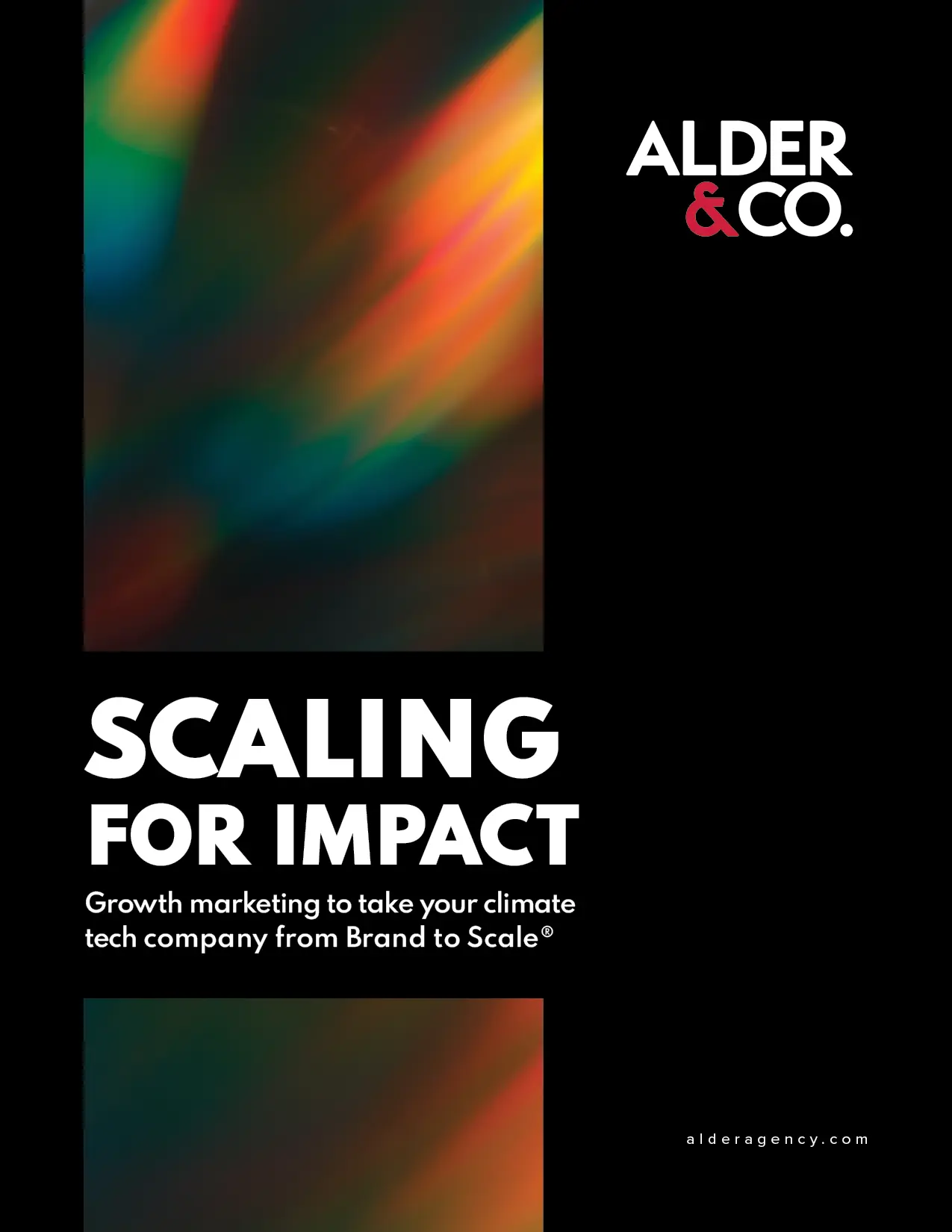
If the orange guy wins the presidential race, allow me to be dramatic, the potential consequences for climate and our industry will be devastating, or at the very least, the start of a major uphill battle. But as founders and leaders of climate advocacy, do we use our brand to stand for a political side? In today’s highly polarized and value-driven marketplace, the question of whether politics has a role in brand communications is increasingly relevant.
An article by Axios titled Fewer Americans want companies to take a stance on politics, offers some insight on the question. The piece highlights a Gallup-Bentley University study which reveals , while fewer Americans want brands to take political positions overall, 49 percent of business owners think climate change is an area where brands should take a stand.
As climate tech marketers, it’s not enough to address vertical-specific regulations (e.g., renewable energy), Corporate Social Responsibility (CSR), and risk management. While our focus must remain on building trust, demonstrating value, and maintaining long-term relationships with clients operating in the climate space, the risk to the broader climate industry and climate progress itself is too high not to take a stand.
Is There Room for Politics in Brand Values?
The short answer is: it depends. For B2C companies, politics can be a natural fit for a brand’s values if the stance aligns closely with the company’s core mission, culture or customer base. For example, companies like Patagonia and Ben & Jerry’s have successfully integrated political stances into their brand identities because their values—environmental conservation and social justice—are closely linked to the political issues they address. Consumers expect and support these stands because they align with the brand’s mission.
For a B2B company in a heavily regulated industry, politics inherently plays a role. That means we need to address changing regulations, trade policies, or environmental standards in our communications. These communications are often focused on educating and supporting customers about recent regulatory changes and providing thought leadership–a point of view–on the evolving landscape. This positions the B2B brand as an expert capable of offering solutions that align with or anticipate these regulatory shifts.
B2B companies can also highlight their commitment to sustainability or diversity in their marketing efforts to appeal to clients who prioritize ESG (Environmental, Social, and Governance) criteria in their business decisions. While this isn’t always framed as overtly political, these values intersect with political debates, particularly in the current social climate.
Larger public companies however need to manage risk and stability with shareholders, so what then? Political shifts—whether in the form of trade wars, political shifts , or geopolitical conflicts—can impact supply chains, pricing and market access. Therefore, consider how communication can support the company’s plan to mitigate or adapt to political risks. B2B companies might use this type of messaging to assure their customers of business continuity, regardless of political upheaval.
When You Take a Stand, Consider These Tips
- Consistency & Authenticity: The first step in communicating political values is ensuring that the stance is consistent with the brand’s history and actions. Companies should not only talk the talk but also walk the walk. For example, if a brand claims to support sustainability, it should have demonstrable practices in place to back that claim. Buyers and other stakeholders like employees, investors and partners are increasingly savvy and will spot inconsistencies between what a brand says and what it does.
- Knowing Your Audience: Understanding the target audience is crucial. Consumers who align with your political values are more likely to support your stand, while others may reject or even boycott your brand. It’s essential to weigh the benefits of potentially deepening loyalty with one group against the risk of alienating others.
- Subtlety vs. Boldness: Not every brand needs to take a bold, public stand on every issue. Some brands may choose subtle communication through partnerships, donations, or quiet support for causes that align with their values, e.g., a company could donate a percentage of profits to social causes rather than make an overt political statement.
- Focus on Issues, Not Partisanship: Rather than aligning with political parties, brands often find success when they focus on issues. Social and environmental causes can transcend party lines and resonate with broader audiences. This way, brands can address subjects and territories important to their brand while avoiding the alienation that often comes with party politics. Read: (More than 90 business leaders endorse Kamala Harris for president)
There is room for politics in brand values, but only if it aligns authentically with the company’s mission and resonates with its desired audience. How a brand communicates these values—whether subtly or boldly—depends on its identity, customers and goals. The key is to stay true to core values and take consistent actions that demonstrate a genuine commitment to the political or social causes the brand chooses to support.
But it’s also important to remember that in this moment, we’ve moved beyond politics as we know it. The current election isn’t about tax incentives or subtle regulatory shifts–the future of the climate movement is at stake and at an absolutely critical time. There is a common saying among activists, “Silence is violence.” Keep the stakes in mind as you decide whether to take a stand.
Written by
Melanie Adamson
Melanie spent the last 20 years researching audiences, building multi-channel plans, and developing sound strategies that have earned her the recognition of her colleagues as a marketing expert among business and consumer industries. Through the partnership of executive and creative staff, she leads the Alder creative and strategic teams to produce successful and effective marketing deliverables for clients. When Mel isn’t running Alder, she loves cooking for family and friends, and sharing stories with a glass of French or Spanish red wine.



